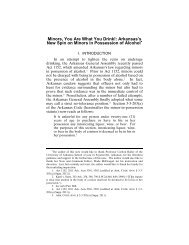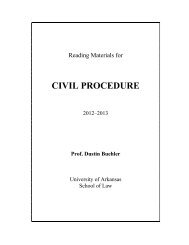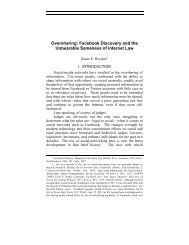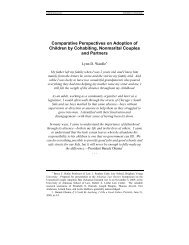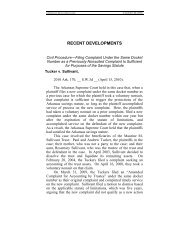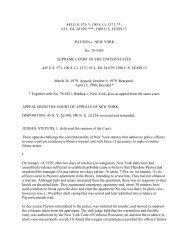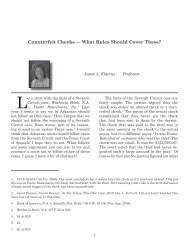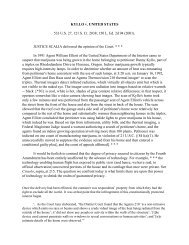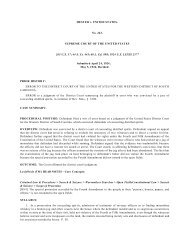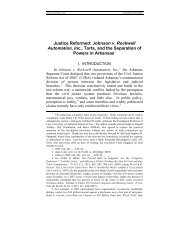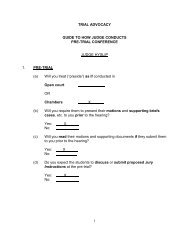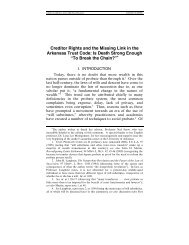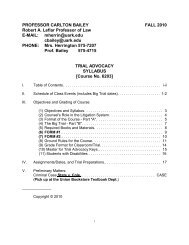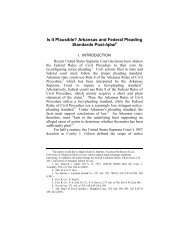Sample Memo Formatted
Sample Memo Formatted
Sample Memo Formatted
You also want an ePaper? Increase the reach of your titles
YUMPU automatically turns print PDFs into web optimized ePapers that Google loves.
Grant may still argue that his actions do not fall within the purview of the statute<br />
because, unlike the defendants in Gooch who held the officers “with the expectation of<br />
benefit” to themselves, Grant did not hold Schweitzer with an expectation of benefit to<br />
himself. Rather, he did so for the exclusive benefit to Dr. Horner, whose NSF grant<br />
would be in jeopardy if Schweitzer appeared before the grant committee. This argument<br />
fails for two reasons. First, Grant did receive a benefit from his actions, in that he<br />
acknowledged his actions were conducted either as payment for Horner’s past assistance<br />
or with an expectation of future benefit from Horner. Grant stated that Horner had asked<br />
him “if [Grant] could do him a favor.” Acknowledging that Horner had “done a lot for<br />
[Grant’s] career in the past,” Grant “wanted to do [Horner] a favor,” adding, “You know,<br />
one hand washes the other.” Secondly, and more importantly, this argument fails because<br />
the captor’s purpose or motivation for the kidnapping is irrelevant. Kidnapping a person<br />
for “any reason” is sufficient. Thus, the government can prove that Grant “held<br />
[Schweitzer] for ransom, reward or otherwise.”<br />
3. Willful Transportation Across A State Border<br />
The government will be able to prove that Grant willfully transported Schweitzer<br />
across a state border. The Federal Kidnapping Act requires that the defendant “willfully<br />
transport [the victim] in interstate or foreign commerce . . . .” 18 U.S.C. § 1201(a)(1)<br />
(2006). Willful transportation exists when the defendant transports the victim from one<br />
point to another and, in so doing, crosses a state line. United States v. Napier, 518 F.2d<br />
316, 319 (9th Cir. 1975). Neither the defendant’s knowledge nor his intention of crossing<br />
10



